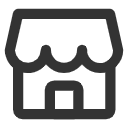- Attractions in Liberia
- Language
- Liberia is a linguistically diverse nation, with over 30 indigenous languages spoken across its regions, the most prominent being Kpelle, Bassa, and Grebo. English, introduced during the colonial era, serves as the official language and is widely accepted in government, education, and business. Its prevalence allows for effective communication among the diverse ethnic groups and facilitates international interactions.
- Best time to visit
- The best time to visit Liberia is during the dry season, which typically runs from November to April. This period offers pleasant weather with lower humidity and minimal rainfall, making it ideal for exploring the country’s stunning natural landscapes, vibrant wildlife, and beautiful beaches. January and February are particularly popular months, as they feature the most favorable conditions for outdoor activities and cultural experiences. However, if you're interested in witnessing local festivals and the vibrant atmosphere of community celebrations, consider visiting in late December, when various events take place.
- Festivals
- Date: JulyFestival name: Liberia Independence DayCelebrating Liberia's independence in 1847, this day features parades, cultural performances, church services, and community feasts. Visitors can enjoy the lively street festivities, patriotic music, and traditional food.
- Date: AugustFestival name: Liberia National Flag DayA tribute to Liberia's flag and its symbolism, this day includes school parades, flag-hoisting ceremonies, and historical reenactments. Travelers can witness the nation's pride through colorful and educational events.
- Local cuisine
- Palm Butter
- A rich and flavorful stew made from palm nut extract, often cooked with fish, chicken, or beef, along with spices, peppers, and vegetables. It is typically served with rice.
- Jollof Rice
- A one-pot rice dish cooked with tomatoes, onions, and a blend of spices, often enhanced with chicken, fish, or beef for added flavor.
- Cassava Leaf
- Finely chopped cassava leaves simmered with palm oil, peppers, onions, and meats or fish, creating a hearty and spicy dish. Served with rice or fufu.
- Fufu and Soup
- Fufu is made from boiled and pounded cassava or plantains, served alongside spicy soups made with ingredients like goat, chicken, or dried fish.
- Fried Plantains
- Sliced ripe plantains fried until golden and caramelized, a sweet and savory snack or side dish.
- Palm Wine
- A naturally fermented drink made from the sap of palm trees, offering a sweet, tangy, and mildly alcoholic taste.
- Ginger Beer
- A spicy, non-alcoholic drink made from fresh ginger root, sugar, lemon, and water, often served chilled.
- Liberian Cane Juice
- A refreshing juice extracted from sugarcane, enjoyed fresh and sometimes spiced with ginger or lime.
- Packing
When packing for a trip to Liberia, prioritize lightweight, breathable clothing suitable for warm, humid weather. Opt for loose-fitting cotton or linen garments to stay comfortable during the day. Don't forget a wide-brimmed hat and sunglasses for sun protection. Sturdy sandals or walking shoes are essential for exploring both urban areas and nature. Include a light rain jacket, especially if traveling during the rainy season. Insect repellent is crucial to ward off mosquitoes, and a basic first-aid kit can be handy. Lastly, remember to pack sunscreen and a reusable water bottle to stay hydrated while enjoying the stunning landscapes and vibrant culture.
- Currency
Liberia's official currency is the Liberian Dollar (LRD), which is subdivided into 100 cents. Banknotes are available in denominations of 5, 10, 20, 50, 100, 500, and 1,000 dollars. While the US Dollar (USD) is also widely accepted, it's advisable to carry Liberian Dollars for smaller transactions. ATMs are available in major cities like Monrovia, but they may not always accept foreign cards, so it's wise to check in advance. Credit card acceptance is limited, primarily in hotels and larger establishments, so having cash on hand is essential for daily expenses.
- Transport
Liberia's primary international gateway is Roberts International Airport (ROB), located approximately 35 kilometers from the capital, Monrovia. For in-country travel, options include shared taxis, which are a popular and economical choice, as well as private taxis and motorbike taxis for quicker, more flexible journeys. Buses and "kekes" (motorized rickshaws) are also available for longer distances. To navigate effectively, it’s advisable to negotiate fares in advance for taxis and be prepared for varying road conditions.
- Emergency
In Liberia, public displays of affection are generally frowned upon, and it's considered impolite to point at people or objects with your finger; instead, use your thumb. Additionally, when greeting, a firm handshake is customary, but be mindful that personal space is valued. In case of emergencies, the local emergency number is 911, which can be dialed for police, fire, and medical assistance.
- Power socket
Liberia operates on a voltage of 120V and a frequency of 60Hz, making it compatible with most North American appliances. The power sockets used are primarily Type A and Type B, which feature two flat parallel pins and, in the case of Type B, an additional grounding pin.
- Top Liberia tour operators
Happy Explore Safari
3 ReviewsOffer Tours InKenya 2 ToursVerified



